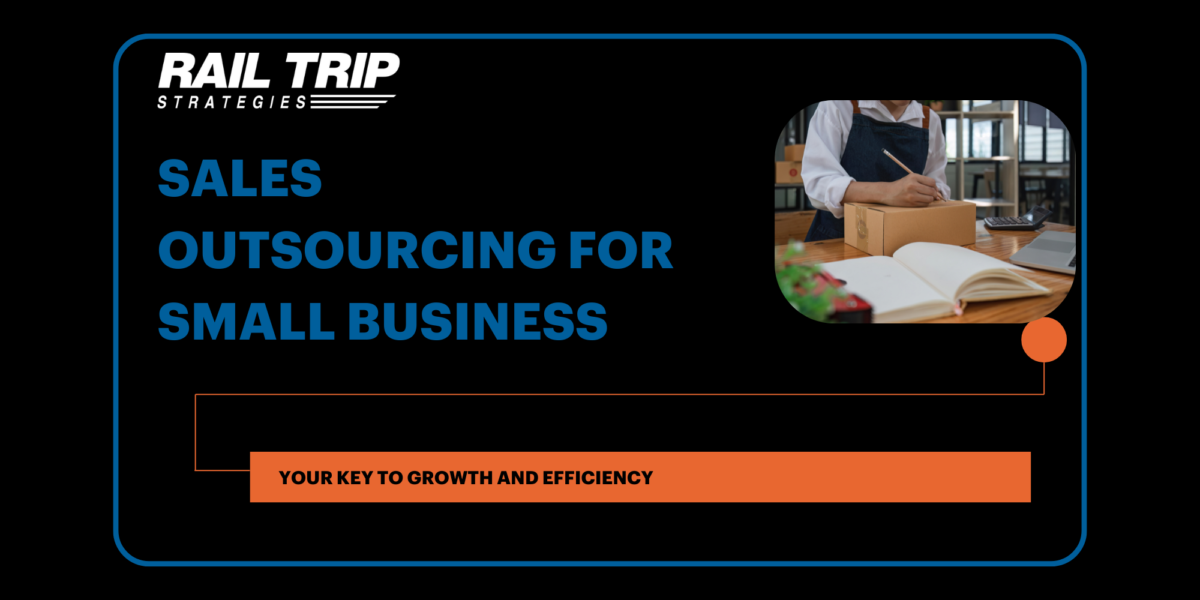Outsourcing sales has become a pivotal strategy for small businesses aiming to expand their reach and improve efficiency without the overhead of a full-time sales team. This article delves into the intricacies of sales outsourcing, highlighting its benefits, challenges, and actionable steps for small business owners considering this approach.
What is Sales Outsourcing?
Sales outsourcing refers to delegating some or all of a company’s sales functions to agencies or specialized providers. For small businesses, this typically involves engaging third-party teams to handle tasks such as pre-sales tasks, lead generation, cold calling, and deal closing. Outsourcing sales allows small businesses to concentrate on their core operations while benefiting from the experience of seasoned sales professionals.
How It Works
In a standard outsourcing arrangement, a small business partners with a sales outsourcing firm, integrating the external team as an extension of its internal sales staff. These outsourcing firms generally have access to tools and methodologies designed to enhance the sales process and overall productivity.
Key Components of Sales Outsourcing
Delegation of Sales Activities: Businesses outsource various sales functions, including lead generation, appointment setting, cold calling, and deal closing. This delegation enables companies to focus on core operations while sales experts manage the sales processes.
Partnership with Specialized Firms: Companies typically partner with specialized sales outsourcing firms that bring industry-specific knowledge and expertise. These firms act as strategic partners, using proven sales methodologies to accelerate revenue growth.
Integration with Internal Teams: Effective sales outsourcing involves integrating the external sales team with internal staff. Proper onboarding ensures the outsourced team thoroughly understands the company’s products, services, and culture. Clear communication channels facilitate collaboration and goal alignment.
Performance Monitoring: Businesses regularly monitor the performance of outsourced teams against predefined metrics and KPIs. Frequent check-ins ensure alignment with company objectives, allowing timely adjustments to maintain optimal performance.
Benefits of Outsourcing Sales for Small Businesses
Expertise: Outsourced teams offer specialized skills and in-depth industry knowledge, helping small businesses improve sales performance rapidly.
Scalability: Businesses can quickly scale their sales efforts up or down in response to seasonal demand or market fluctuations, without long-term commitments.
Cost Efficiency: Outsourcing sales helps businesses reduce costs associated with hiring, training, and maintaining an internal sales team.
Faster Market Entry: By leveraging the outsourced team’s existing networks and market knowledge, businesses can accelerate their entry into new markets or territories.
Challenges of Sales Outsourcing
Despite its benefits, outsourcing sales does come with certain challenges, including:
Loss of Control: Companies might experience reduced oversight over the sales process and interactions with customers.
Integration Issues: Difficulties can arise when integrating external teams with internal processes, potentially impacting alignment and effectiveness.
Communication Barriers: Miscommunication or lack of clear communication between outsourced and internal teams can hinder performance and alignment.
Alignment: Maintaining alignment on company goals, messaging, and culture can require considerable effort and consistent communication.
To mitigate these challenges, businesses should establish clear expectations, regular communication channels, and thorough onboarding processes. set expectations upfront regarding performance metrics and brand guidelines.
How to Decide if Sales Outsourcing is Right for Your Business
Outsourcing sales can significantly enhance efficiency and reduce costs for small businesses, but careful evaluation of specific needs is essential. Key considerations include:
Cost Efficiency: Evaluate potential savings versus maintaining an internal sales team.
Access to Expertise: Consider the specialized industry knowledge and sales techniques available through outsourcing.
Scalability and Flexibility: Determine your need for rapid adjustment of sales efforts based on market fluctuations.
Focus on Core Activities: Assess whether outsourcing sales would allow greater emphasis on strategic business initiatives.
Improved Customer Experience: Evaluate the potential for enhanced customer support and satisfaction through dedicated outsourced teams.
Key Factors to Consider When Choosing a Sales Outsourcing Provider
- Industry Experience: Confirm that the provider has relevant industry experience.
- Technology Stack: Ensure they utilize advanced sales tools and technologies.
- Proven Track Record: Look for demonstrated success through testimonials or case studies.
- Cultural Fit: Verify alignment of values and culture to maintain consistency and cohesion.
Types of Sales Outsourcing Models
Sales outsourcing can be categorized into several models:
| Model | Description |
| Lead Generation | Focuses on identifying potential customers and arranging meetings. |
| Full Sales Outsourcing | Covers all aspects of the sales process from prospecting to closing. |
| Project-Based Outsourcing | Suitable for temporary campaigns or specific projects. |
Cost of Sales Outsourcing for Small Businesses
The costs associated with sales outsourcing can vary widely based on the chosen model. Common pricing structures include:
Hybrid Models: A combination of fixed fees and performance-based commissions.
Fixed Rates: A set monthly or periodic fee for specific services rendered.
Commission-Based: Payment calculated based on the sales results generated by the outsourced team.
Typical costs range from approximately $1,000 to $10,000 per month, depending on the division of labor, services provided and the complexity of sales tasks involved.
Hidden Costs to Watch Out For
While outsourcing can lead to cost savings, be aware of potential hidden costs such as:
- Training expenses for onboarding and integrating outsourced teams.
- Costs associated with software tools for collaboration and communication.
- Unanticipated expenses related to performance monitoring, adjustments, or contract revisions.
Step-by-Step Guide to Outsourcing Sales
Measure Success: Regularly evaluate the performance of your outsourced team against established KPIs to ensure alignment and effectiveness.
Define Your Goals: Clearly outline your objectives for outsourcing sales.
Research Providers: Identify companies that match your needs based on industry experience and service offerings.
Assess Contracts: Carefully review terms, expectations, and performance metrics before signing any agreements.
Conclusion: Is Outsourcing Sales Right for Your Small Business?
Outsourcing sales offers powerful benefits, from cost savings and scalability to faster market entry and access to seasoned expertise.
If you’re exploring how outsourcing sales could drive growth and efficiency in your business, Rail Trip Strategies can help you navigate the process seamlessly. Our approach ensures alignment with your goals, voice + tone, and ideal client.

